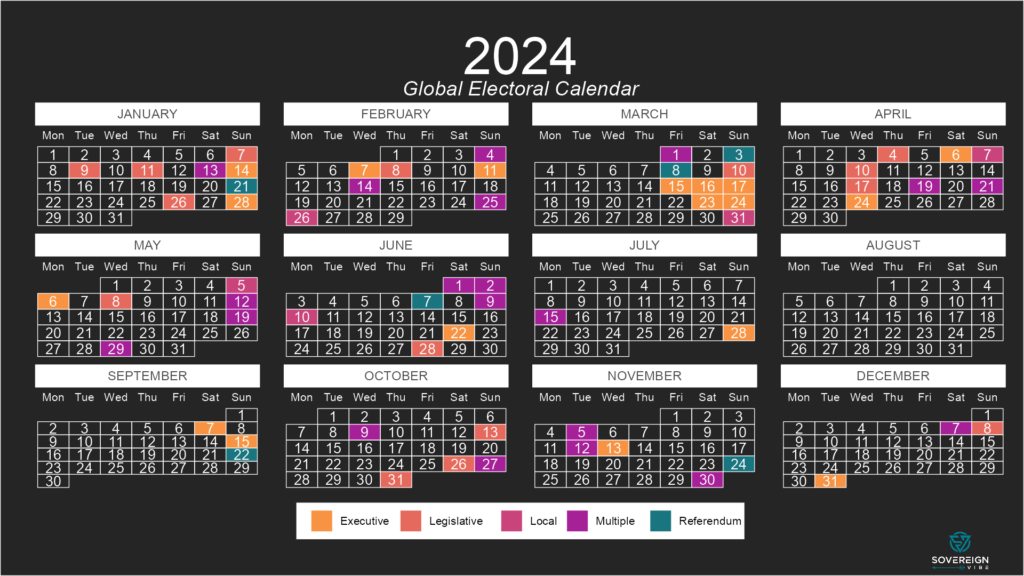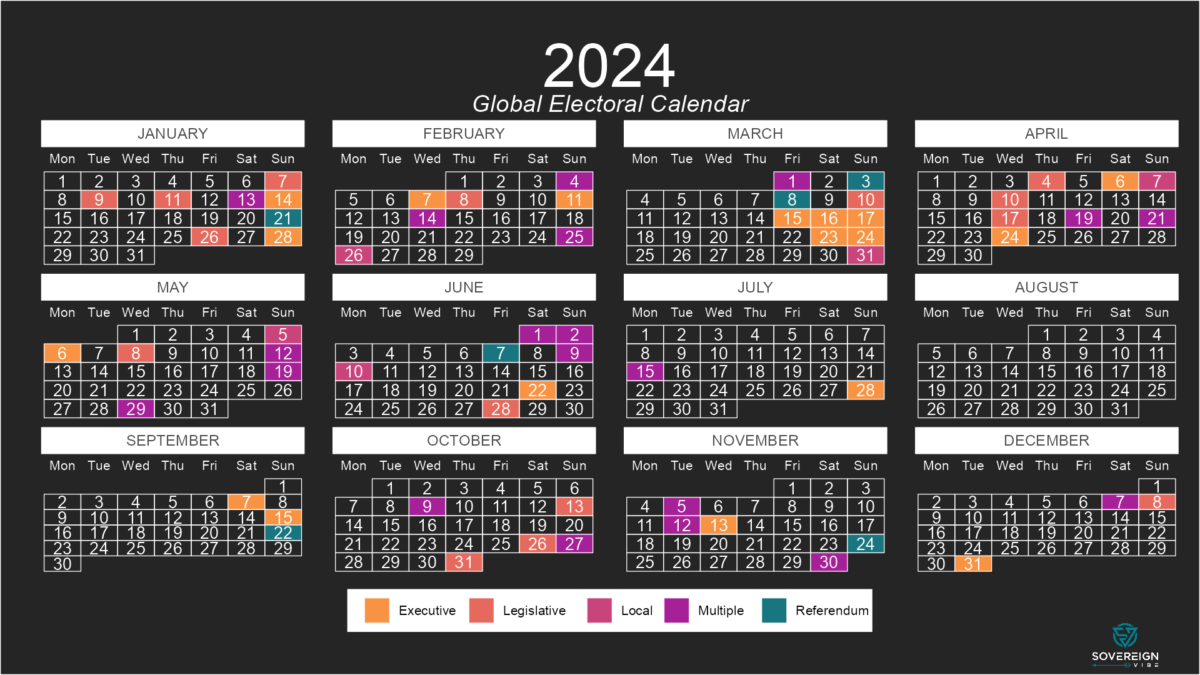With so much of the world headed to the polls in 2024, a quick stock-take of results so far and a look ahead are in order. The outcome of each contest shapes broader international trends of deglobalization.

Of populists & liberals
The paradox is that both populist and liberal political parties have pursued policies leading to international economic fragmentation. On the populist side, trade tariffs à la Trump are the most obvious example. Populism has of course also lead to schisms in western cooperation, whether Republican reticence on NATO and Ukraine, or pro-Russian leadership in Hungary and, more recently, Slovakia (see below).
Liberal political forces are also responsible for deglobalization. The prime example is the widespread use of economic sanctions by the Biden administration and Western Europe against Russia. Yet the current US administration has not only kept the Trump era’s trade barriers in place, it has also introduced more protectionist measures through the landmark Inflation Reduction Act.
Moreover, the success of liberal parties in the broad West can benefit cohesion among allies at the expense of decoupling from opponents. Case in point, Finland’s new president comes from a pro-Europe, pro-NATO party, highlighting how joining NATO bolsters cooperation within the West while also – quite understandably – turning away from Russia.
Populism has the edge
Despite these nuances, a high-level view of electoral outcomes around the world sheds light on the direction that future international economic relationships will take. By the end of the year, the US, India, Indonesia, Mexico, and many other countries will have voted. The question isn’t so much whether the world will continue to fragment, but rather how, which is what monitoring elections can help answer.
So far this year, populist forces have advanced to varying degrees in Slovakia, Indonesia, Senegal, Poland, and will likely maintain power in India. The military continues to loom over politics in Pakistan, while Bangladesh’s authoritarian Awami League has left virtually no space for any opposition.
In contrast, results in Taiwan, Finland, and Turkey have favored more liberal political parties. Similarly, upcoming legislative elections in South Korea will likely see the center-left and center-right parties continue to dominate the political landscape.
Electoral highlights year-to-date
- Poland: The nationalist, opposition PiS party came out ahead in local elections on April 7th, but Prime Minister Tusk’s ruling coalition will likely hold on to power in most regions.
- Slovakia: The result of April 6th’s second round runoff in Slovakia are in, with the ascension of pro-Russian politician Peter Pellegrini to the presidency confirming the country’s pivot towards Moscow, after Robert Fico’s return as Prime Minister in October 2023.
- Turkey: The victory of the opposition Republican People’s Party in local elections on March 31st were a setback to President Erdogan’s ruling AKP, with Istanbul’s mayor Ekrem Imamoglu strengthened by this outcome.
- Indonesia: The general election on February 14th marks a turn away from incumbent Joko Widodo’s center-left PDI-P to the nationalist, right-wing populist Gerindra party under current defense minister Prabowo Subianto, who will be sworn in as president in October.
- Pakistan: International media have contested the fairness of the February 8th elections, though former prime minister Imran Khan’s PTI secured the largest share of the vote despite being in prison. The PML-N’s Shehbaz Sharif is now prime minister of a coalition government.
- Senegal: Political novice Bassirou Diomaye Faye rose to the presidency in the March 24th election, defeating the government-backed candidate. Although Faye has announced several significant policy changes, the composition of his economic team has reassured investors.
- Taiwan: The results of the January 13th presidential election represent continuity for Taiwan in its opposition to the One China policy, with the center-left DPP’s Lai Ching-te to be inaugurated as president in May 2024.
- Bangladesh: The US State Department claims that January 7th’s general election wasn’t free and fair. In power since 2009, incumbent Prime Minister Sheikh Hasina of the Awami League has won election for the fourth consecutive time.
- Finland: The January 28th and February 11th two-round presidential election resulted in the victory of Alexander Stubb, of the pro-NATO, pro-European liberal-conservative National Coalition party.
April elections

- India: While there is little doubt that Narendra Modi’s BJP will secure victory in the seven-round general election, the Lok Sabha, running from April 19th – June 4th, it appears voters are willing to accept some democratic backsliding in exchange for stronger economic growth.
- South Korea: The center-left DPK holds the most seats in the National Assembly, while its historic rival, the conservative PPP, holds the presidency. These two main parties appear to be neck and neck in polling for the April 10th legislative election.

